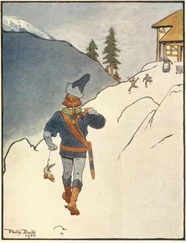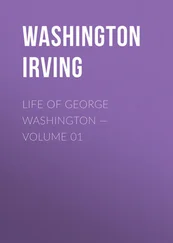Pelham Wodehouse - Not George Washington — an Autobiographical Novel
Здесь есть возможность читать онлайн «Pelham Wodehouse - Not George Washington — an Autobiographical Novel» весь текст электронной книги совершенно бесплатно (целиком полную версию без сокращений). В некоторых случаях можно слушать аудио, скачать через торрент в формате fb2 и присутствует краткое содержание. Жанр: Классическая проза, Юмористическая проза, на английском языке. Описание произведения, (предисловие) а так же отзывы посетителей доступны на портале библиотеки ЛибКат.
- Название:Not George Washington — an Autobiographical Novel
- Автор:
- Жанр:
- Год:неизвестен
- ISBN:нет данных
- Рейтинг книги:4 / 5. Голосов: 1
-
Избранное:Добавить в избранное
- Отзывы:
-
Ваша оценка:
- 80
- 1
- 2
- 3
- 4
- 5
Not George Washington — an Autobiographical Novel: краткое содержание, описание и аннотация
Предлагаем к чтению аннотацию, описание, краткое содержание или предисловие (зависит от того, что написал сам автор книги «Not George Washington — an Autobiographical Novel»). Если вы не нашли необходимую информацию о книге — напишите в комментариях, мы постараемся отыскать её.
Not George Washington — an Autobiographical Novel — читать онлайн бесплатно полную книгу (весь текст) целиком
Ниже представлен текст книги, разбитый по страницам. Система сохранения места последней прочитанной страницы, позволяет с удобством читать онлайн бесплатно книгу «Not George Washington — an Autobiographical Novel», без необходимости каждый раз заново искать на чём Вы остановились. Поставьте закладку, и сможете в любой момент перейти на страницу, на которой закончили чтение.
Интервал:
Закладка:
I foresaw that the future held out positive hope that my marriage with Margaret would become possible. And yet——
Pausing in the midst of my castle-building, I suffered a sense of revulsion. I had been brought up to believe that the only adjective that could be coupled with the noun "journalism" was "precarious." Was I not, as Gresham would have said, solving an addition sum in infantile poultry before their mother, the feathered denizen of the farmyard, had lured them from their shell? Was I not mistaking a flash in the pan for a genuine success?
These thoughts numbed my fingers in the act of writing to Margaret.
Instead, therefore, of the jubilant letter I had intended to send her, I wrote one of quite a different tone. I mentioned the arduous nature of my work. I referred to the struggle in which I was engaged. I indicated cleverly that I was a man of extraordinary courage battling with fate. I implied that I made just enough to live on.
It would have been cruel to arouse expectations which might never be fulfilled. In this letter, accordingly, and in subsequent letters, I rather went to the opposite extreme. Out of pure regard for Margaret, I painted my case unnecessarily black. Considerations of a similar nature prompted me to keep on my lodging in Walpole Street. I had two rooms instead of one, but they were furnished severely and with nothing but the barest necessaries.
I told myself through it all that I loved Margaret as dearly as ever. Yet there were moments, and they seemed to come more frequently as the days went on, when I found myself wondering. Did I really want to give up all this? The untidiness, the scratch meals, the nights with Julian? And, when I was honest, I answered, No.
Somehow Margaret seemed out of place in this new world of mine.
CHAPTER 6
NEW YEAR'S EVE (James Orlebar Cloyster's narrative continued)
The morning of New Year's Eve was a memorable one for me. My first novel was accepted. Not an ambitious volume. It was rather short, and the plot was not obtrusive. The sporting gentlemen who accepted it, however—Messrs. Prodder and Way—seemed pleased with it; though, when I suggested a sum in cash in advance of royalties, they displayed a most embarrassing coyness—and also, as events turned out, good sense.
I carried the good news to Julian, whom I found, as usual, asleep in his hammock. I had fallen into the habit of calling on him after my Orb work. He was generally sleepy when I arrived, at half-past eleven, and while we talked I used to make his breakfast act as a sort of early lunch for myself. He said that the people of the house had begun by trying to make the arrival of his breakfast coincide with the completion of his toilet; that this had proved so irksome that they had struck; and that finally it had been agreed on both sides that the meal should be put in his room at eleven o'clock, whether he was dressed or not. He said that he often saw his breakfast come in, and would drowsily determine to consume it hot. But he had never had the energy to do so. Once, indeed, he had mistaken the time, and had confidently expected that the morning of a hot breakfast had come at last. He was dressed by nine, and had sat for two hours gloating over the prospect of steaming coffee and frizzling bacon. On that particular morning, however, there had been some domestic tragedy—the firing of a chimney or the illness of a cook—and at eleven o'clock, not breakfast, but an apology for its absence had been brought to him. This embittered Julian. He gave up the unequal contest, and he has frequently confessed to me that cold breakfast is an acquired, yet not unpleasant, taste.
He woke up when I came in, and, after hearing my news and congratulating me, began to open the letters that lay on the table at his side.
One of the envelopes had Skeffington's trade mark stamped upon it, and contained a bank-note and a sheet closely type-written on both sides.
"Half a second, Jimmy," said he, and began to read.
I poured myself out a cup of cold coffee, and, avoiding the bacon and eggs, which lay embalmed in frozen grease, began to lunch off bread and marmalade.
"I'll do it," he burst out when he had finished. "It's a sweat—a fearful sweat, but——
"Skeffington's have written urging me to undertake a rather original advertising scheme. They're very pressing, and they've enclosed a tenner in advance. They want me to do them a tragedy in four acts. I sent them the scenario last week. I sketched out a skeleton plot in which the hero is addicted to a strictly moderate use of Skeffington's Sloe Gin. His wife adopts every conceivable measure to wean him from this harmless, even praiseworthy indulgence. At the end of the second act she thinks she has cured him. He has promised to gratify what he regards as merely a capricious whim on her part. 'I will give—yes, I will give it up, darling!' 'George! George!' She falls on his neck. Over her shoulder he winks at the audience, who realise that there is more to come. Curtain. In Act 3 the husband is seen sitting alone in his study. His wife has gone to a party. The man searches in a cupboard for something to read. Instead of a novel, however, he lights on a bottle of Skeffington's Sloe Gin. Instantly the old overwhelming craving returns. He hesitates. What does it matter? She will never know. He gulps down glass after glass. He sinks into an intoxicated stupor. His wife enters. Curtain again. Act 4. The draught of nectar tasted in the former act after a period of enforced abstinence has produced a deadly reaction. The husband, who previously improved his health, his temper, and his intellect by a strictly moderate use of Skeffington's Sloe Gin, has now become a ghastly dipsomaniac. His wife, realising too late the awful effect of her idiotic antagonism to Skeffington's, experiences the keenest pangs of despair. She drinks laudanum, and the tragedy is complete."
"Fine," I said, finishing the coffee.
"In a deferential postscript," said Julian, "Skeffington's suggest an alternative ending, that the wife should drink, not laudanum, but Sloe Gin, and grow, under its benign influence, resigned to the fate she has brought on her husband and herself. Resignation gives way to hope. She devotes her life to the care of the inebriate man, and, by way of pathetic retribution, she lives precisely long enough to nurse him back to sanity. Which finale do you prefer?"
"Yours!" I said.
"Thank you," said Julian, considerably gratified. "So do I. It's terser, more dramatic, and altogether a better advertisement. Skeffington's make jolly good sloe gin, but they can't arouse pity and terror. Yes, I'll do it; but first let me spend the tenner."
"I'm taking a holiday, too, today," I said. "How can we amuse ourselves?"
Julian had opened the last of his letters. He held up two cards.
"Tickets for Covent Garden Ball tonight," he said. "Why not come? It's sure to be a good one."
"I should like to," I said. "Thanks."
Julian dropped from his hammock, and began to get his bath ready.
We arranged to dine early at the Maison Suisse in Rupert Street— table d'hôte one franc, plus twopence for mad'moiselle—and go on to the gallery of a first night. I was to dress for Covent Garden at Julian's after the theatre, because white waistcoats and the franc table d'hôte didn't go well together.
When I dined out, I usually went to the Maison Suisse. I shall never have the chance of going again, even if, as a married man, I were allowed to do so, for it has been pulled down to make room for the Hicks Theatre in Shaftesbury Avenue. When I did not dine there, I attended a quaint survival of last century's coffee-houses in Glasshouse Street: Tall, pew-like boxes, wooden tables without table-cloths, panelled walls; an excellent menu of chops, steaks, fried eggs, sausages, and other British products. Once the resort of bucks and Macaronis, Ford's coffee-house I found frequented by a strange assortment of individuals, some of whom resembled bookmakers' touts, others clerks of an inexplicably rustic type. Who these people really were I never discovered.
Читать дальшеИнтервал:
Закладка:
Похожие книги на «Not George Washington — an Autobiographical Novel»
Представляем Вашему вниманию похожие книги на «Not George Washington — an Autobiographical Novel» списком для выбора. Мы отобрали схожую по названию и смыслу литературу в надежде предоставить читателям больше вариантов отыскать новые, интересные, ещё непрочитанные произведения.
Обсуждение, отзывы о книге «Not George Washington — an Autobiographical Novel» и просто собственные мнения читателей. Оставьте ваши комментарии, напишите, что Вы думаете о произведении, его смысле или главных героях. Укажите что конкретно понравилось, а что нет, и почему Вы так считаете.



